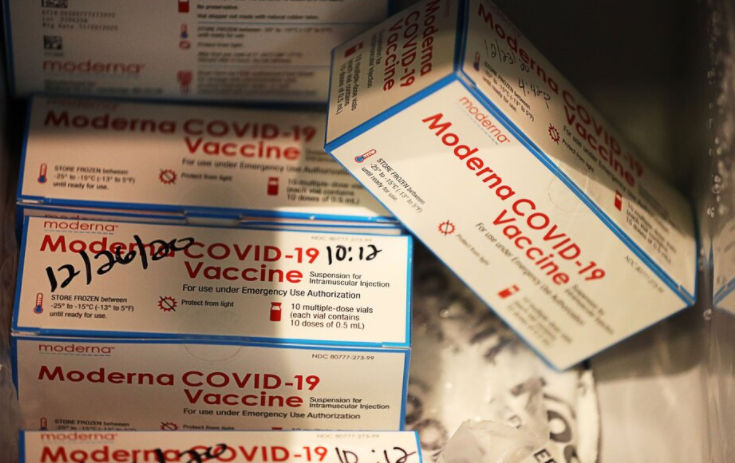Pew Research: 69% Say They Will Get Vaccinated
- Up From 60% in November

COVID: Can Vaccinations Be Mandated? Law Needs Clarification
So far, the studies on the COVID-19 vaccines in use have been positive. They
truly are effective at protecting the recipients from disease, and those who do
get infected generally have much milder cases. They also appear to reduce the
chances that vaccinated people will pass the virus along to someone else. The
vaccines themselves have been safe with manageable, short-term side effects.
But if the vaccination number doesn't continue to improve, the population
won't reach herd immunity. Worse, the level of contagion will remain high
enough for new mutations to become established.
&uuid=(email))
Businesses, schools, universities and other employers have more immediate
reasons to push for employees and the adults they serve to be vaccinated: so
that people can return to normal activity safely. Museums, malls, amusement
parks, movie houses and stadiums might want to ensure that visitors are
immunized to prevent business-deflating superspreader events.
But before society determines who, if anyone, must be vaccinated, we have to
know whether such a mandate would even be legal.
Private employers in most states can require many things of employees,
including submitting to vaccines that prevent other workers as well as customers
from getting sick.
But the COVID-19 vaccines are in a different category, approved by the U.S. Food
and Drug Administration under what's called "emergency use authorization" That
designation made the lifesaving vaccines available after they were successful in
clinical trials but before they had gone through all the hoops a vaccine
normally would. The process is ongoing, but it will take a year or two to
complete, and few of us want to wait that long. The health of the nation
cannot afford it.
The 2003 law allowing emergency use appears to specify that people cannot
be required to use any of these drugs or devices. Or maybe it doesn't. The
wording is so confusing that even legal experts aren't sure.
Each person must be informed "of the option to accept or refuse
administration of the product," the law states, but it goes on to say that
they must be told about "the consequences, if any, of refusing."
The first part indicates that everyone has the right to refuse an emergency-use
vaccine like the three in U.S. circulation now. But then what's that part about
consequences? Does it refer only to health consequences, as in catching a
potentially fatal illness, or does it mean the government could impose a fine,
or an employer could fire you, or a school could refuse your child entry?
The affected businesses and public agencies need answers, which could
come from Congress amending the language or a court ruling clarifying the
situation. Or we could just wait a year or two until the vaccines go through the
full approval process, risking the emergence of more mutant strains and possibly
many unnecessary deaths. Lawmakers, it's your call.
govtech.com